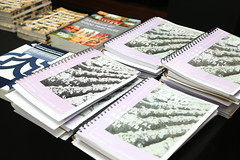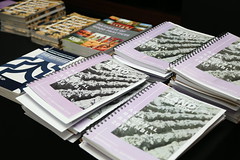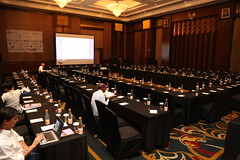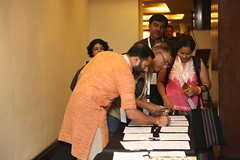SOURCE: ADB
At a signing ceremony ahead of the high-level forum, ESCAP, UNDP and ADB announced that they will deepen their existing collaboration to advance regional action to end poverty and inequality, support better environmental stewardship, and promote shared prosperity and well-being for all. This will be achieved by facilitating high-level policy dialogues and capacity building services, delivering quality knowledge products and promoting strategic development cooperation in the region.
Shamshad Akhtar, United Nations Under-Secretary-General and Executive Secretary of ESCAP, emphasized that a different approach to inclusive growth and sustainable development is urgently needed to ensure the success of the 2030 Agenda in the countries of Asia and the Pacific. “Our regional experience, and relative success in MDG achievement, has set the stage for implementation of the SDGs,” said Ms. Akhtar. “What we need now is a focus on areas such as financing, science, technology and innovation – and in this context we have to lead on policy consistency and coherence.”
“Building the future we want requires mainstreaming sustainable development in national plans and budgets, and backing them with strong follow-up and review at the regional level.”
Stephen P. Groff, Vice-President of ADB pointed out that how the region balances economic prosperity, social equity and environmental responsibility will matter not just to Asia and the Pacific, but to the world. “ADB applauds the increased ambition of the SDGs and will support these in Asia through increased investments in human needs, infrastructure, and cross-border public goods. This renewed tripartite collaboration around the 2030 Agenda and the SDGs will contribute to regional policy dialogue and knowledge services, complementing national actions,” said Mr. Groff.
“In financing sustainable development, ADB will increase its overall lending by up to 50% from 2017 to around $20 billion a year and double its climate financing to $6 billion a year by 2020.”
On the occasion of signing the tripartite agreement, Haoliang Xu, Assistant Administrator and Director of the Regional Bureau for Asia and the Pacific, UNDP, underscored the importance of technology and innovation in helping achieve the lofty goals. “The bold global goals agreed to by the world leaders last week will require innovation and extensive action to deliver widespread prosperity in Asia and the Pacific, and to meet the ambitions for people and the planet,” said Mr. Xu. “UNDP stands ready to support countries in the region to help quickly integrate the 2030 agenda into national plans, so that aspirations can be fast-tracked into development results.”
Welcoming the new partnership at the high-level forum, President of Tajikistan Emomali Rahmon said: “We attach importance to the harmonization of the previous strategies with the new agenda for sustainable development for the post 2015 period, and we attach special importance to regional cooperation in development of infrastructure, including realization of projects on construction of railroads and highways, transmission lines and gas pipelines.”
The Prime Minister of Samoa, Tuilaepa Sailele Malielegaoi, added: “Pacific small island developing states need, more than ever, to work with a coordinated United Nations system because we need to move quickly to identify and implement programs which will help our nations deal immediately with the needs of our people and region.”
The original partnership between UNDP and ESCAP dates from 2001, with ADB having joined in 2004. The three partners embarked on a regional MDGs project to monitor development progress in Asia and the Pacific in a unified way. Over the last decade, the partnership has evolved into a significant regional platform for policy dialogue, with the Regional MDG Report series contributing to higher visibility of MDGs issues and strengthening cross-country exchange of ideas for MDG achievement. The new agreement will build on this partnership to support the efforts of member States to ensure effective implementation of the SDGs.
For further information, contact:
Katie Elles
Public Information Officer, Strategic Communications and Advocacy Section, ESCAP
T: (66) 2 288 1865 M: (66) 9481 525 36
E: elles@un.org
Stanislav Saling
Media Relations & Public Affairs, Regional Bureau for Asia and the Pacific, UNDP
T: (1) 212 906 6575, M: (1) 917 346 1955
E: stanislavsaling@undp.org
Harumi Kodama
Team Leader, Media Relations, Department of External Relations, ADB
T: +63 2 632 5291, M: +63 908 888 6701
E: hkodama@adb.org


.jpg/_jcr_content/renditions/cq5dam.web.540.390.jpeg)






